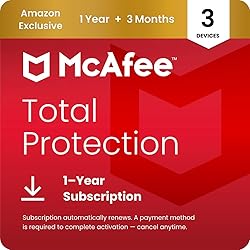VPN for Teachers and Students: Education Without Limits
VPN for teachers and students is becoming increasingly crucial in today’s modern digital classrooms. As educational institutions continue to embrace online resources and remote learning, the role of cybersecurity and user privacy has never been more important. Teachers and students alike face a variety of threats—ranging from cyber-attacks to unauthorized data tracking—making robust security solutions an absolute necessity. Enter the Virtual Private Network (VPN): a tool that transcends geographical boundaries, keeps personal information secure, and guarantees that educational content remains accessible from anywhere in the world.
Why a VPN Matters in Education
Online education connects millions of teachers and students, enabling learning without borders. However, this vast digital ecosystem can expose users to significant risks. Cyber threats such as phishing attacks, malware, and the interception of sensitive data are rising among academic circles. Moreover, many schools and universities impose restrictions on certain websites or resources, limiting information flow and curbing academic freedom.
A VPN addresses these challenges by encrypting internet traffic, hiding users’ IP addresses, and bypassing content restrictions. This not only gives users the freedom to access educational materials securely but also ensures their browsing data remains private, protecting them from malicious actors and intrusive third parties.
VPN for Teachers and Students: Enhancing Online Security
Teachers routinely handle sensitive data—student grades, personal information, and internal assessments—that must be kept confidential. Students, on the other hand, often use public Wi-Fi networks in libraries or coffee shops, exposing them to potential cyber eavesdropping and identity theft.
Here’s how a VPN for teachers and students can fortify online safety:
– Data Encryption: VPNs encrypt all internet traffic. This means any personal data transmitted (such as login credentials or exam results) is scrambled so that it cannot be read by hackers.
– Protection on Public Networks: Whether logging in from a campus café or their home, users are protected from cybercriminals lurking on unsecured networks.
– Anonymity Online: By masking the IP addresses, VPNs prevent tracking and build a safe digital learning environment.
Overcoming Geo-Restrictions with VPNs
The global nature of the internet is both a blessing and a curse in education. While a world of information is available online, some educational content may be restricted by region due to licensing agreements or censorship policies. For instance, a video tutorial accessible in the USA might be blocked in another country.
A VPN for teachers and students breaks down these barriers. By connecting to servers in different countries, users can bypass content blocks and make the most of open educational resources—no matter where they are. This fosters a truly global classroom, opening up limitless learning opportunities for both educators and students.
Safeguarding Academic Freedom and Privacy
Privacy isn’t just a buzzword; it’s a cornerstone of trust in education. VPNs help maintain that trust by stopping unauthorized surveillance and keeping students’ search habits confidential. In an age when tech companies and even governments are eager to track online behavior, a VPN is a simple yet powerful way to protect academic integrity and intellectual curiosity.
Additionally, VPNs enable teachers to safely collaborate on cross-border projects and research without fear of data leaks or espionage, further enriching the academic experience.
Choosing the Right VPN for Educational Use
With a range of VPN providers available, selecting the best one for academic purposes is vital. Here are some features to consider:
– Ease of Use: Look for VPNs with user-friendly apps for multiple devices (PCs, tablets, and smartphones).
– Strong Security Protocols: Choose providers with robust encryption, no-logs policies, and features like kill switches.
– Wide Server Network: The more countries covered, the better access teachers and students will have to global resources.
– Reliable Support: Responsive customer service is essential for troubleshooting and guidance.
– Affordable Pricing: Many VPNs offer student and educator discounts—take advantage of these deals.
Conclusion
VPN for teachers and students is much more than just a tool—it’s an enabler of modern, secure, and unrestricted education. As digital learning continues to evolve, embracing VPN technology ensures privacy, safety, and the freedom to access educational materials from anywhere. By adopting these solutions, educational institutions, teachers, and learners can create a safer, more open internet—truly achieving education without limits.


